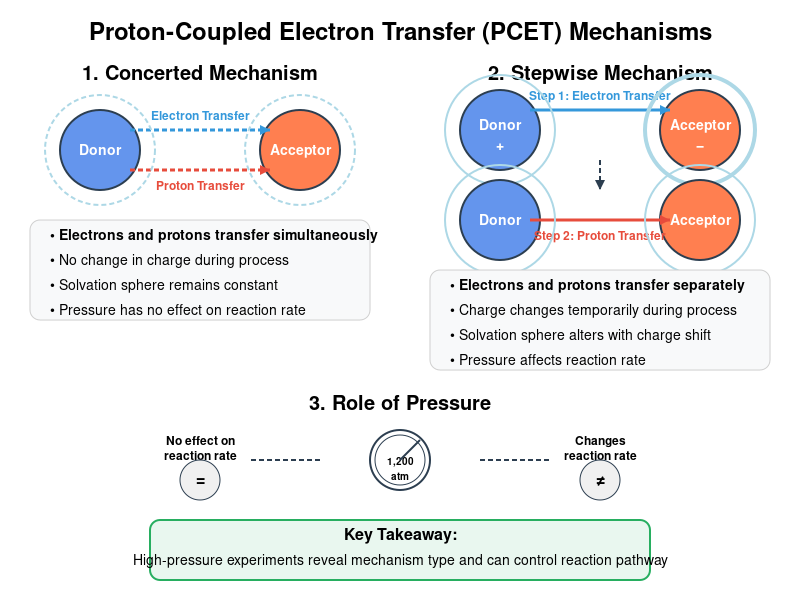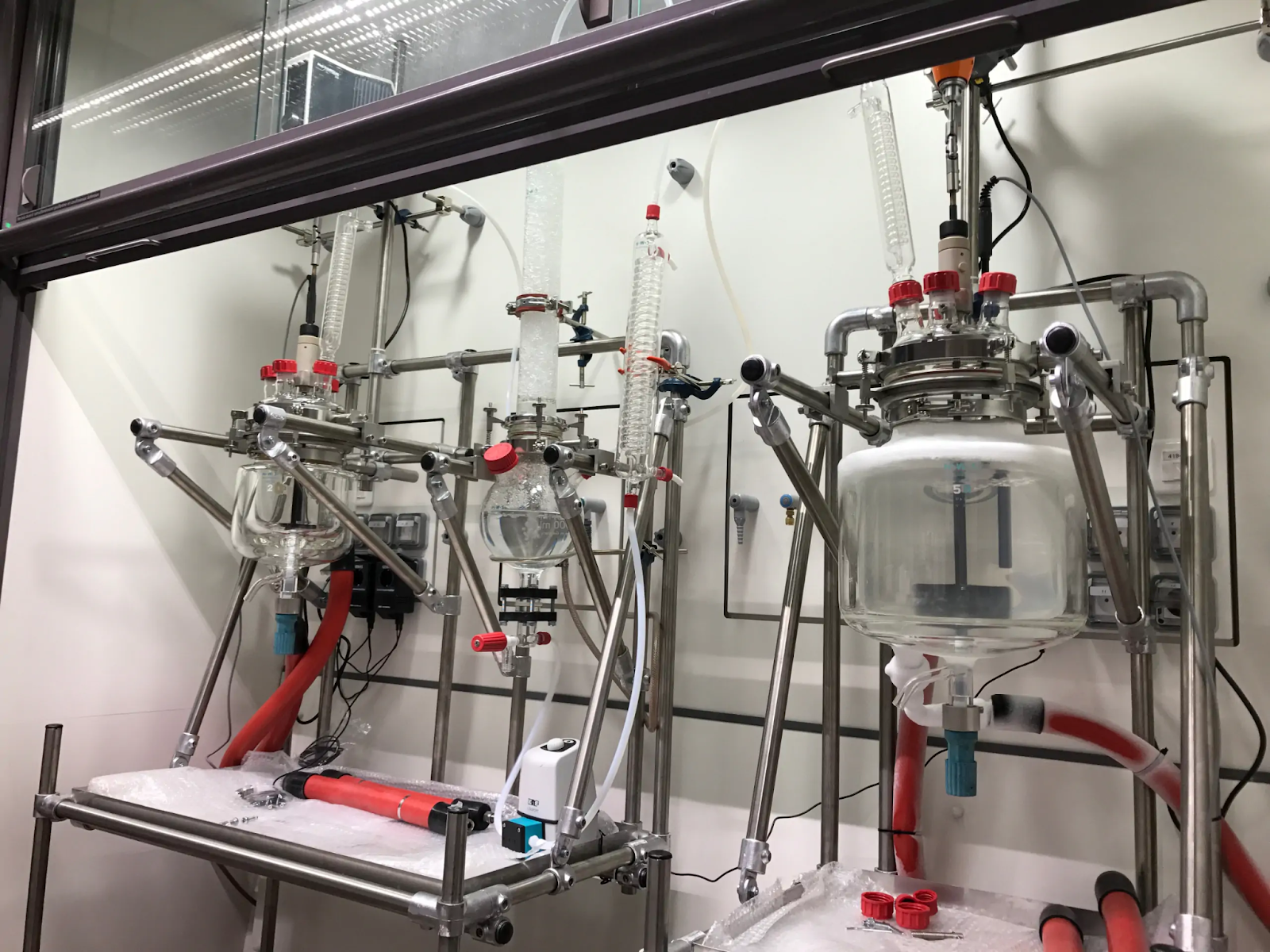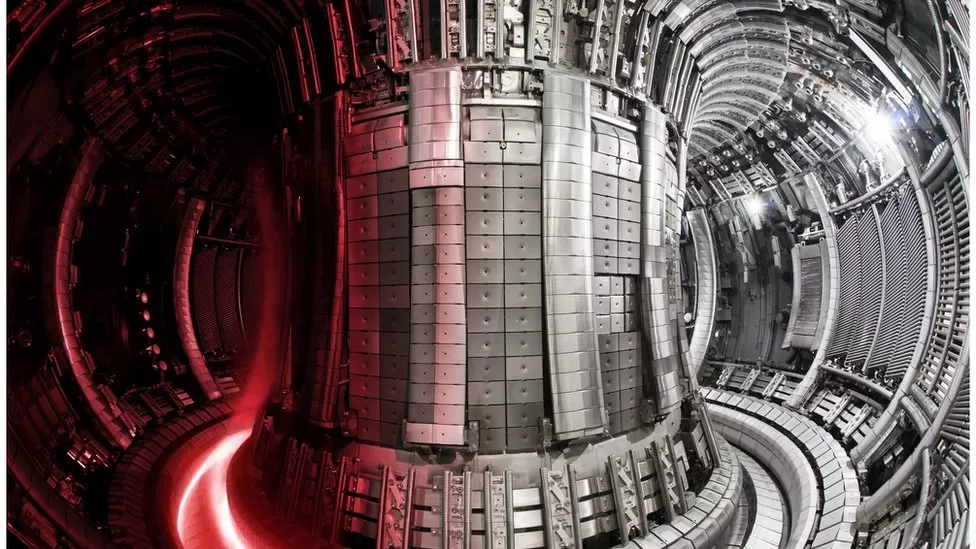Proton-Coupled Energy Transfer Deciphered: High-Pressure Research Reveals Key Mechanisms
In a groundbreaking study, a team of researchers have discovered new mechanisms of proton-coupled electron transfer (PCET), a fundamental process that is the base for life-sustaining reactions such as cellular respiration and photosynthesis. Using an innovative high-pressure technique, the team has successfully distinguished between two key reaction mechanisms, paving the way for advancements in energy conversion and storage technologies.
The Balancing Act of Electrons and Protons
Redox reactions, which involve the transfer of electrons between molecules, are critical to both natural and industrial processes. However, electron transfer alone can create energetically unfavorable charge imbalances. Nature’s solution? Coupling electron transfer with the movement of positively charged protons. As the researchers explain, “This proton-coupled electron transfer (PCET), as it is known, does not produce any change in charge—the most efficient way for a redox reaction to occur.”
But how exactly do these transfers occur? There are two possibilities: either electrons and protons move simultaneously in a “concerted” mechanism, or they transfer separately in a stepwise fashion. “To be able to optimize these processes, we need to know the exact mechanisms,” says Professor Ivana Ivanović-Burmazović. “Before now, however, there has been no direct method for differentiating the two alternatives with certainty. Our work set out to remedy this.”
Pressure Yields the Answer
The research team, led by Professor Ivana Ivanović-Burmazović of LMU Munich and Professor Dirk Guldi from FAU Erlangen-Nürnberg, investigated the influence of pressure on a light-induced reaction in a photosensitive molecule. By applying pressures of up to 1,200 atmospheres (atm), they observed how the reaction rate changed or was unaffected under extreme conditions. “If high pressure—in the experiment, up to 1,200 atmospheres—is applied and the reaction rate remains unchanged, it is a concerted reaction,” explains Ivanović-Burmazović. “When electrons and protons are transferred simultaneously, charge of reacting species does not change and neither does the associated solvation sphere—that is, the cluster of solvent molecules surrounding the molecules. Therefore, pressure has no influence on reaction rate—a clear sign of a concerted mechanism.” Conversely, if the rate changes, this points to changes in the charge and to a change in the volume of the solvation sphere—indicating a stepwise process.

Surprising Control Over Reaction Pathways
The team’s findings went beyond mere observation. “By increasing the pressure, we managed to steer the reaction from a stepwise mechanism toward a concerted mechanism,” says Ivanović-Burmazović. This level of control opens up new possibilities for designing and optimizing chemical processes.
Implications for Energy and Beyond
The study’s results have potential for practical applications. As the authors emphasize, “The new findings are highly significant for numerous research areas that deal with the motion of electrons and protons. They not only offer new insights into fundamental chemical processes, but could also help advance new technologies concerned with the conversion and storage of chemical energy—such as redox catalysis for the generation of solar fuels or for hydrogen production.”

Looking Ahead
The team’s innovative use of high-pressure techniques sets a new standard for studying complex reaction mechanisms. As researchers continue to explore the intricacies of PCET, the findings could lead to breakthroughs in fields as diverse as biochemistry, materials science, and renewable energy.
For now, one thing is clear: the connection between high-pressure science and molecular chemistry has furthered our understanding of the building blocks of life and energy to a new level.
Citations:
Langford, D., Rohr, R., Bauroth, S. et al. High-pressure pump–probe experiments reveal the mechanism of excited-state proton-coupled electron transfer and a shift from stepwise to concerted pathways. Nat. Chem. (2025). https://doi.org/10.1038/s41557-025-01772-5
Ludwig-Maximilians-Universität München. “Proton-coupled electron transfer: Deciphered with high pressure.” ScienceDaily. ScienceDaily, 21 March 2025. <www.sciencedaily.com/releases/2025/03/250321121450.htm>.
High pressure reactors – optimus instruments. (2024, June 27). Optimus Instruments. https://optimus.be/subject/high-pressure-reactors/


